John Green
25 April 2024
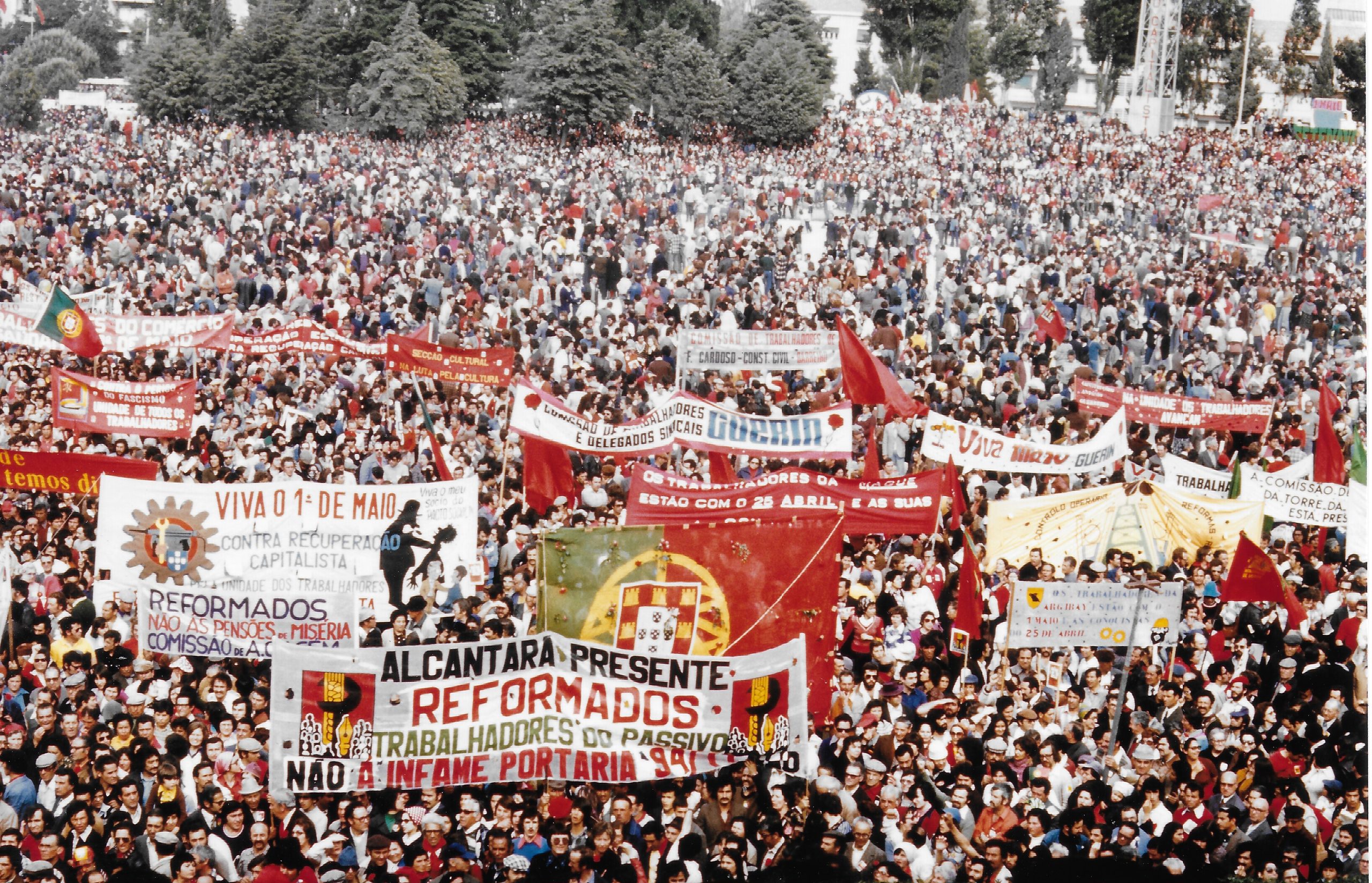
John Green studied film and camera in the German Democratic Republic (GDR) during the 1960s. He returned to his home country, the United Kingdom, in 1968 and began working for GDR television as a foreign correspondent. Green and his colleagues were part of what became known as the “Gruppe Katins” at GDR Television, a team of correspondents led by the well-respected East German producer Dr. Sabine Katins. They covered events in Portugal for several years after the Carnation Revolution of 1974, making 10 documentaries in total. They also reported regularly on the liberation struggles in Mozambique, Angola, Zimbabwe, Namibia, and South Africa.
The world was taken by surprise on the morning of 25 April 1974, to hear that Europe’s oldest dictatorship in Portugal had been overthrown. I and my colleague, as journalists working for GDR television, were sent to cover events as they unfolded.
We touched down at Lisbon airport on the morning of the 27th, immediately unpacked our camera and started shooting. From then on, we only put the camera down when we went to bed late in the evening. Already at the airport the atmosphere was charged: large groups of people waited for their loved ones to arrive; many had been exiled for years by the dictatorship. There were ecstatic embraces, laughter, and tears of joy.
The centre of Lisbon was awash with flowers and knots of jubilant groups on every street corner. Soldiers and sailors stood sentry in front of official buildings, not in a menacing manner, but nonchalant and relaxed, red carnations in their lapels or in the barrels of their guns, now converted from killing tools into flower vases. They were continually embraced by ordinary citizens, who showered them with flowers and kisses, drinks, and food. I have never seen an army so at one with the people. One young conscript told us, “Yes we now have a unity between the people and the armed forces, and we must make sure no one destroys that.”
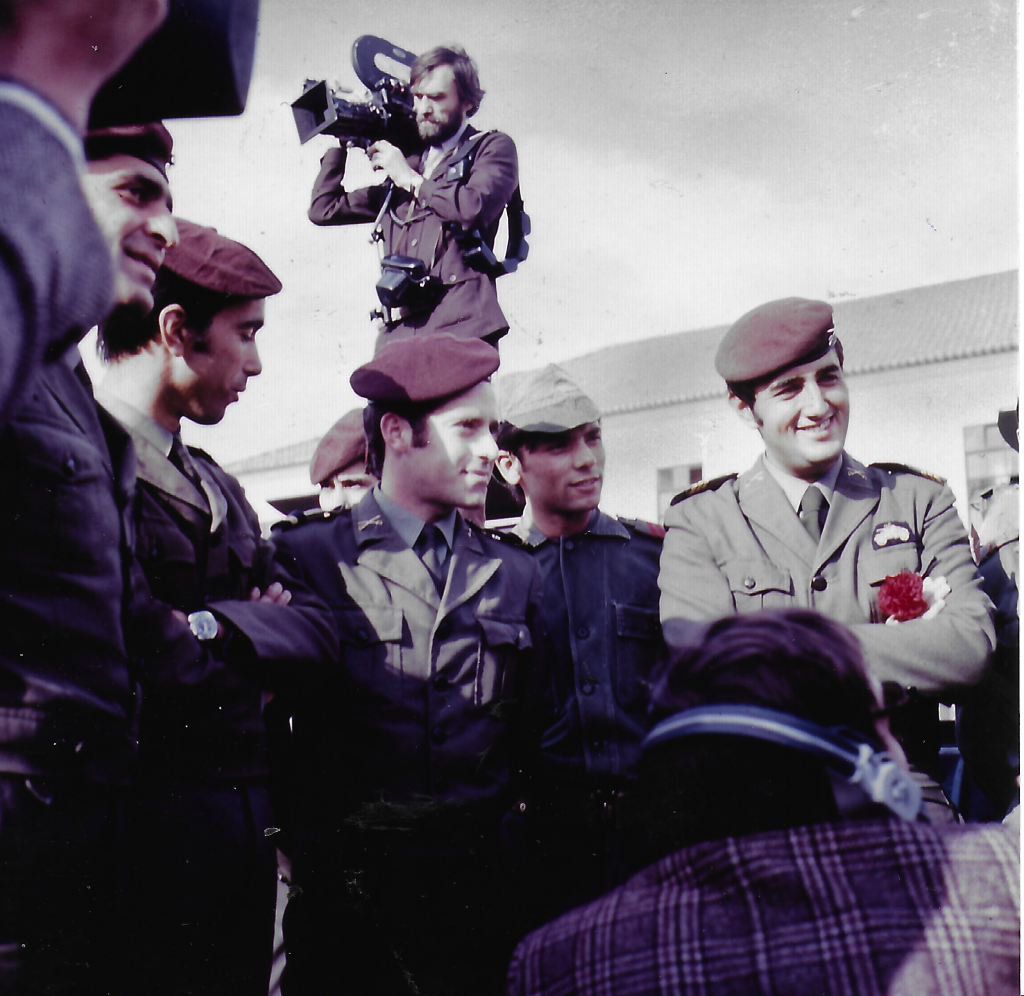
Every street corner, office and factory became a beehive of revolutionary activity. Political prisoners, some who’d been languishing in the dictator Caetano’s notorious jails for years, were released into the arms of their overjoyed families; the secret police headquarters, the radio stations and government buildings were now in the hands of rebel soldiers, trade unions were re-established, housing associations and local residents’ committees set up and political parties mushroomed from nowhere. I instinctively felt the parallels with the Bolshevik revolution of 1917, as described by John Reed in “10 Days that Shook the World”. There was a palpable sense of unity and fraternity, of regained national dignity, everyone celebrating together.
This revolution was not only a cause for great celebration in Portugal itself but perhaps even more so for those in the Portuguese colonies that would soon, after years of brutal and relentless struggle find themselves free. And it should not be forgotten that it was largely as a result of the increasing success of the liberation forces in these colonies that led to the Carnation Revolution in Portugal itself.
Between 1961–74 Portugal had been waging wars of attrition in its African colonies. Apart from France, Portugal was the only European country still holding on to its overseas colonies in Angola, Mozambique Guinea-Bissau and the Cape Verde Islands in Africa, Goa in India and Macau in China.
Still in the grip of a fascist dictatorship, Portugal was determined to hold on to its colonies even though doing so was bleeding the mother country dry. At their height, the wars were consuming up to 40 percent of the Portuguese budget. They were costly also in terms of lives lost. The Estado Novo regime enforced an army conscription, which included a mandatory two-year tour in the African colonies. Apart from many ordinary soldiers, a considerable number of young officers were also losing their lives in what were widely seen as unwinnable wars, and at home this was creating increased resistance to the wars. Disaffection within the army was spreading and it was this that finally triggered the overthrow of an intransigent and ossified regime in the mother country.
The liberation struggles in Mozambique, Angola and Guinea-Bissau were becoming very effective and were bleeding Portugal economically and giving it real headaches. The armed forces of FRELIMO in Mozambique, MPLA in Angola and The African Party for the Independence in Guinea and Cape Verde (PAIGC), were all led by very capable leaders. These guerrilla forces were being supported with weapons and training by the socialist states, particularly the Soviet Union and the GDR.
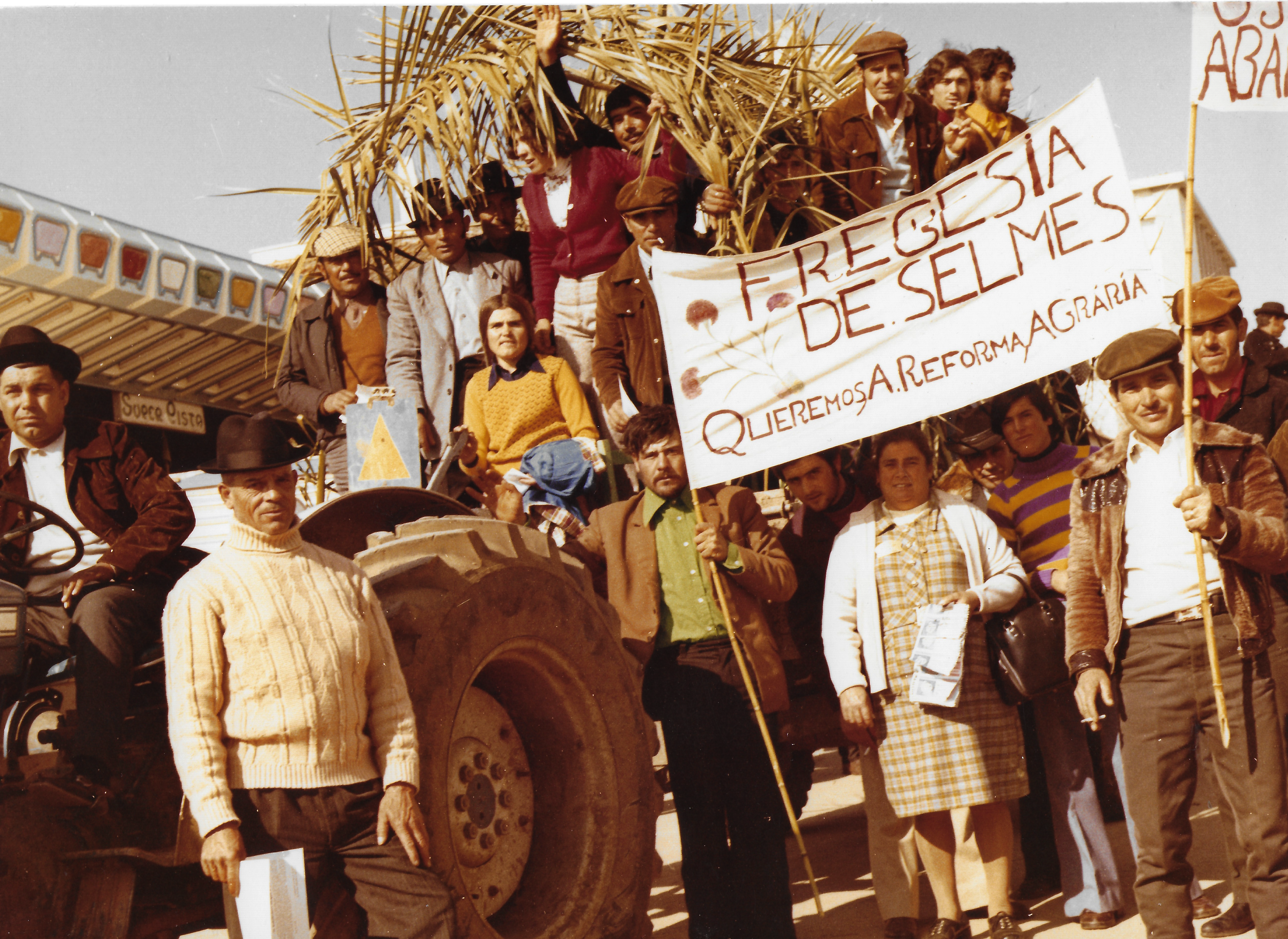
In February 1974, Portuguese dictator Caetano decided to remove General Spinola from the command of Portuguese forces in Guinea-Bissau in the face of his increasingly vocal dissatisfaction with Portuguese colonial policy and the regime’s military strategy. This inspired other military officers to set up the clandestine Movement of the Armed Forces (MFA) with the aim of liberating Portugal from the fascist Estado Novo regime and introducing necessary reforms.
Only the year before the Carnation Revolution itself, I had been filming a report in Mozambique and witnessed first-hand the demoralisation of Portuguese forces there, which were already confined to small bases and had little control over the surrounding countryside. I also noted that the weaponry the Portuguese were using was marked as from NATO supplies, a fact never disclosed at the time.
Only days after the 25th April, we visited the former Lisbon headquarters of PIDE, the secret police. In the office of Silva Pais, the security chief, his diary was still open on the 25th, his papers were held down by an enormous plaster penis, a half-drunk bottle of Johnny Walker stood next to two dirty glasses. On the bookshelf behind his desk was a selection of books, including one by Regis Debray on Che Guevara, tomes on the history of the USSR, communism in Africa, a Batista autobiography, and a number of books on Cuba, which clearly reflected the preoccupation of the secret services with the liberation struggles.
The Portuguese Communist Party (PCP) was the only one that had existed on the ground in the country throughout the dictatorship and was at that moment the best organised political force in the country.
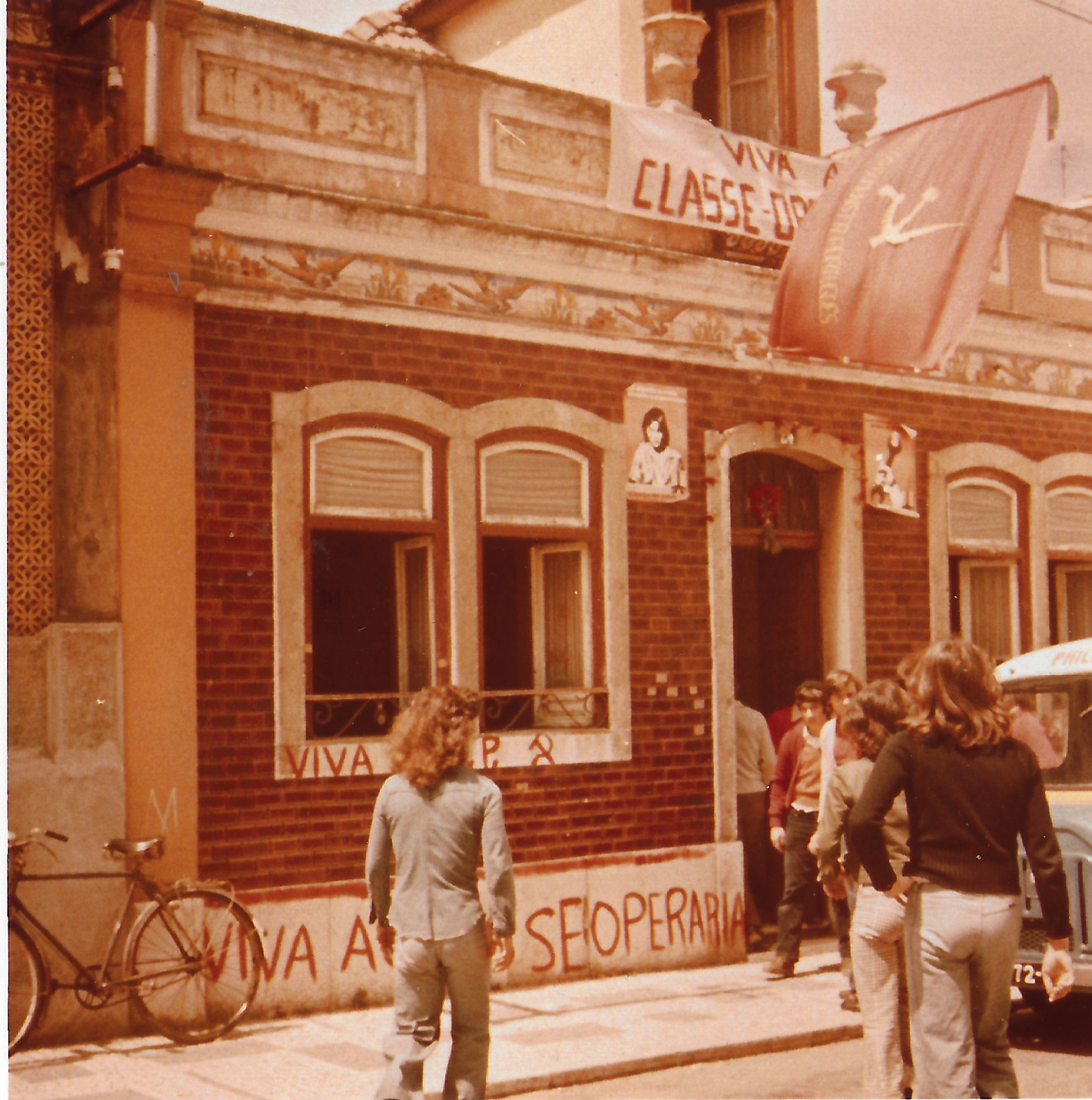
Álvaro Cunhal, the Communist leader, returned from exile in Moscow and stood shoulder to shoulder with Mario Soares, the socialist leader, returned from Paris, together with soldiers from the MFA (the Movement of the Armed Forces). For a short time, it looked as if the Carnation Revolution would become a socialist revolution.
Leading western nations were, however, appalled at the idea of Portugal, a NATO stalwart, turning socialist — the Caetano dictatorship had been a loyal member of NATO and the Organisation’s South Atlantic headquarters were in Portugal.
Mario Soares’ Socialist Party had been formed only the previous year in West Germany, and was quite small and insignificant at that time, but for many it represented a more palatable alternative to the communists. Soares offered the people ’socialism with a human face’, but when his party came to power, it gave the people only another dose of the same economic austerity medicine they’d been forced to swallow for decades.
In the first free, constitutional elections of 1975, the Socialist Party emerged as the strongest party and began calling the shots.
There was the economic sabotage by the powerful capitalist nations and Portugal’s own ruling class. The new US ambassador was Frank Carlucci, who had been their man in the Congo when Lumumba was assassinated in 1961, and in Brazil before the military coup and bloody suppression of democracy there. He did his best to ensure that Portugal remained firmly in the capitalist camp.
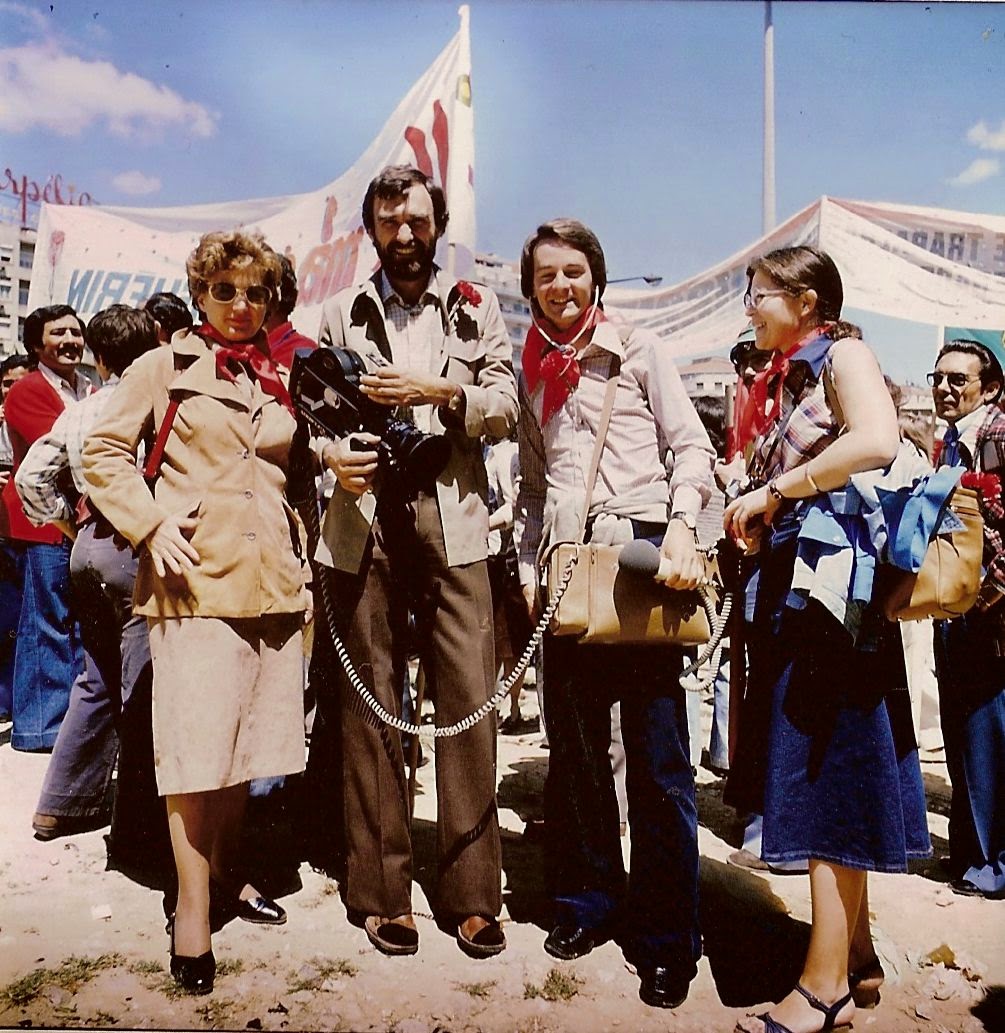
Mario Soares became the first civilian prime minister in 1976 and president in 1986. He happily presided over a country still firmly capitalist and little better off economically than in the past, although it now enjoyed a pluralist and stable bourgeois democracy.
Unfortunately, the nominal liberation of Portugal’s African colonies did not spell the end of oppression. When Portugal admitted defeat and pulled out its troops, this was shortly followed by pulling out virtually all its administrative and support staff from the colonies, leaving them bereft of much needed expertise. Angola and Mozambique particularly were also later subjected to blatant interference and sabotage by the imperialist powers and their local proxies, South Africa and Rhodesia (as Zimbabwe was then known). These interventions cost the newly liberated countries dear and, despite continued generous aid from the socialist countries, those early years after independence were years of bitter and continued struggle.
We interviewed John Green in September 2021. In the following excerpt, he recalls reporting on the Revolution and how the West intervened to prevent a social revolution in Portugal.

